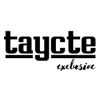Dive Brief:
- In Campbell Soup’s third quarter earnings, CEO Mark Clouse said it will reveal a comprehensive turnaround plan for its beleaguered soup division at its investor day next week. "While we have started to chip away at the challenges, we still have much to do to position this business for improved and sustainable results," he told investors. "We will need to improve investment levels to support the brands. ... Change will not happen overnight, but we are building confidence that we can win in soup again."
-
Even as the company prepares for what could be an extensive overhaul of soup, Clouse said things are showing signs of improving. “In fact, over the latest four weeks, condensed soup consumption was positive,” he said.
-
Soup sales in the U.S. were flat for the third quarter as gains in broth were offset by declines in condensed and ready to serve soups. Consumption was down 2.6% compared to a drop of 5.5% in the first half of the year. Clouse attributed the results to "favorable timing on new revenue recognition accounting" that helped offset a drop in consumption and an expected reduction in inventory levels to start the quarter.
Dive Insight:
Even after Campbell Soup spent roughly $5 billion — it’s largest acquisition ever — to buy Snyder’s-Lance last year and tap into the fast-growing $89 billion snacking category, soup still remains a driving force in the company. It is also a challenging one as upstarts and private-label brands garner a bigger presence in the category.
In the company’s third-quarter earnings report, soup sales were flat and Campbell’s overall market share dropped 2 percentage points in the 12-month period ending in April.
When Mark Clouse took the helm as CEO at the beginning of this year, he stepped into the driver’s seat of a company facing a multitude of challenges. However, he has already proven adept at streamlining and repositioning the company. This April, Campbell Soup announced it would sell its Bolthouse Farms business to an affiliate of private equity firm Butterfly Equity for $510 million. Just a few months earlier, Campbell Soup sold its Garden Fresh Gourmet brand to an affiliate of Fountain of Health USA for an undisclosed amount.
Campbell Soup also is trying to unload its Australian Arnott’s biscuit brand, but so far has been unable to do so. CNBC said Wednesday that Mondelez International ended talks with Campbell Soup after the two sides reportedly couldn't agree on price.
"The company appears to be making some progress in stabilizing its core segments, especially after the completion of the divestiture of the Fresh segment," Scott Mushkin, an analyst with Wolfe Research, said in a research note. "However, our research suggests that (Campbell Soup) still has challenges ahead, particularly as it continues to lose market share in a shrinking soup category. ... We remain cautious that the path to higher growth will likely necessitate further investment and falling" earnings before interest and taxes.
Even with soup now responsible for about 27% of sales compared to snacks at 50%, it remains an important business for Campbell Soup. In recent years, the New Jersey company has rolled out Well, Yes! Soup that touts trendy flavors and nutritional ingredients and portable options for the standard classics. But it has not proven to be enough.
Nevertheless, Clouse seems to have a plan. While he was tight-lipped on the earnings call about the exact nature of his plans to reinvigorate soup, he did say that it was going to be a comprehensive overhaul. Whatever the plan, Campbell Soup is going to have to establish a solid foundation from which to reach younger American customers. No longer is the idea of canned soup going to entice consumers. Campbell Soup is going to have to reinvent its image from the inside out.
Campbell Soup could take a page out of Mondelez’s playbook, and much like Oreo leans on its fans to help suggest new flavors and keep its brand relevant, it should consider taking a similar approach. Showing personalization and investment in its consumer base can go a long way for the company. Gen Z, according to a study by IRI, is two to three times more likely to be influenced by social media than by sales or discounts. Even millennials would likely be appreciative as neither they nor Gen Z are brand loyal. Instead, they are more concerned with brand interaction.
Regardless of its approach, Campbell Soup has a long journey ahead to convince consumers that they aren’t behind the times when it comes to soup. Clouse suggested in the call that the company may start with reimagining soup not as a meal but as an ingredient. That perhaps might be a wise place to start as consumers are continually looking to find convenient short cuts in the kitchen to speed up cooking as they find themselves ever more pressed for time.













